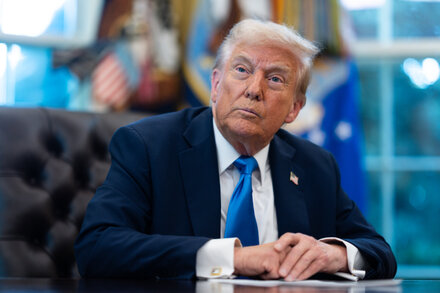Washington D.C. – Former President Donald J. Trump and pharmaceutical giant Pfizer announced a landmark agreement today aimed at significantly reducing the cost of several key medications for beneficiaries of the Medicaid program.
The deal, a voluntary initiative dubbed “TrumpRx,” targets a selection of high-cost prescription drugs, promising lower prices through a combination of rebates and direct discounts. Details of the specific drugs covered under the new arrangement are expected to be released in the coming weeks, but initial reports suggest a focus on treatments for chronic conditions that represent a substantial portion of Medicaid’s drug expenditure.
“We are putting American patients first, especially those who rely on Medicaid for their essential medications,” stated Donald Trump in a press conference. “This deal with Pfizer shows what’s possible when we bring the best of American business together with a commitment to our citizens. We’re cutting costs and ensuring access to life-saving drugs.”
Pfizer’s CEO, Albert Bourla, echoed this sentiment, emphasizing the company’s commitment to patient access. “Our mission at Pfizer has always been to deliver breakthrough medicines to those who need them,” Bourla commented. “This collaboration with former President Trump’s initiative reflects our ongoing dedication to affordability and ensuring that more Americans can access the treatments necessary for their health and well-being. We believe this is a responsible step forward.”
Impact on Healthcare Costs
The agreement marks a notable development in the ongoing national debate over prescription drug prices. While previous administrations have often sought legislative solutions or utilized existing governmental powers to negotiate drug costs, this deal represents a voluntary partnership between a major pharmaceutical company and a high-profile political figure outside the direct framework of federal regulation. Analysts suggest that if successful, “TrumpRx” could serve as a model for future agreements, potentially influencing pricing strategies across the industry.
Medicaid, a joint federal and state program, provides health coverage to millions of low-income Americans. Drug costs represent a significant and growing expense for the program. The specifics of how the savings will be distributed—whether directly to states, leading to reduced federal outlays, or benefiting patients through lower co-pays—are yet to be fully clarified. However, both parties involved indicated that the primary goal is to alleviate the financial burden on the healthcare system and patients.
Further details regarding the implementation timeline, the precise list of drugs included, and the financial mechanics of the discounts are anticipated in subsequent announcements.
Source: Read the original article here.





